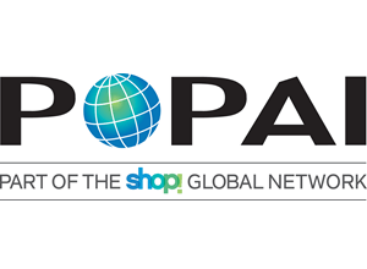Six Key Consumer Behavior Thresholds
POPAI and Shop!* chapters keep in touch and the member organizations are constantly informing each other about the consequences of the virus situation, with particular regard to the development of the Retail, the FMCG sector and the instore industry. Convenience stores are playing an increasingly important role in the United States. Customer reactions were classified into six groups.
In the United States, it was announced on March 30 that the restrictive measures against COVID-19 would be extended until the end of April. Grocery stores, gas stations and shops, as well as delivery restaurants and fast food outlets are open. Most food and restaurant chains announced complimentary beverages for first responders, health care workers and store employees, suffice to wear a uniform or show relevant ID.
More convinient stores
The virus protection plexiglass walls, spacing cordons, floor stickers have also appeared in the US. Within two weeks, retail chains even with thousands of outlets, including 7-Eleven, equipped their own and their franchise partners’ stores with these tools.Most stores carry out daily disinfection deep cleaning and even several times a day at sensitive product categories. Retailers have made the decision to close 14 days and to professional deep cleaning of the locations after employees contracted the novel coronavirus.Convenience stores are gaining in sales as consumers are more likely to visit these smaller but well-stocked stores. Those who do not want to enter the shop will be served through a customized pass-through window, thus reducing personal contact. They can also pick up an online order through these windows. As consumers continue to practice social distancing, QuikTrip Corp. launched On-Lot Pickup and deliver items to the vehicles. 7-Eleven has waived delivery fees for all orders made through its 7NOW delivery app and have the option for contactless delivery, whereby the driver will leave the order at the door. These activities are labor intensive, so each chain recruits and rewards employees with increased wages, bonuses and other perks. 7-Eleven announced the hiring of 20,000 new employees.
From panic and beyond
The six threshold levels defined by Nielsen, based on early indicators across markets are:
Proactive Health-Minded Buying
Consumers’ interest rises in products that support overall maintenance of health and wellness
COVID-19 event markers: Minimal localized cases of COVID-19 generally linked to an arrival of another infected country
Reactive Health Management
Consumers prioritize products essential to virus containment, health and public safety (e.g., face masks)
COVID-19 event markers: First local transmission with no link to other location and first COVID-19-related death(s)
Pantry Preparation
Consumer behavior shifts to pantry stockpiling of shelf-stable foods and a broader assortment of health-safety products; spike in store visits; growing basket sizes
COVID-19 event markers: Multiple cases of local transmission and multiple deaths linked to COVID-19
Quarantined Living Preparation
Increased online shopping, a decline in store visits, rising out-of-stocks, strains on the supply chain
COVID-19 event markers: Localized COVID-19 emergency actions; percentage of people diagnosed continues to increase
Restricted Living
Severely restricted shopping trips, online fulfillment is limited, price concerns rise as limited stock availability impacts pricing in some cases
COVID-19 event markers: Communities ordered into lockdown
Living a New Normal
People return to daily routines (work, school, etc.) but operate with a renewed cautiousness about health; permanent shifts in supply chain, the use of e-commerce and hygiene practices
COVID-19 event markers: COVID-19 quarantines lift beyond region/country’s most-affected hotspots and life starts to return to normal
* POPAI, from 2015 named Shop! is an international organization of the Marketing and Retail industry which headquarters placed in Chicago and Hollywood Florida, representing nearly 2000 local offices. Hungary joined with the POPAI Hungary Association in 2003, which has since then been a nonprofit professional, educational, research and knowledge transfer organisation active mainly in the FMCG sector. Read more: popai.hu
Related news
International POP events
🎧 Hallgasd a cikket: Lejátszás Szünet Folytatás Leállítás Nyelv: Auto…
Read more >Records and innovations
🎧 Hallgasd a cikket: Lejátszás Szünet Folytatás Leállítás Nyelv: Auto…
Read more >Related news
(HU) Tudatos Vendéglátók Konferenciája 2026
🎧 Hallgasd a cikket: Lejátszás Szünet Folytatás Leállítás Nyelv: Auto…
Read more >







